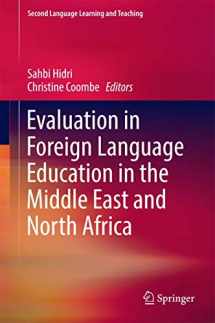
Evaluation in Foreign Language Education in the Middle East and North Africa (Second Language Learning and Teaching)
Book details
Summary
Description
This book presents evaluation cases from the Middle East and North Africa (MENA) context, investigating the various facets of evaluation in different parts of the MENA region and beyond. In 19 chapters, it explores cases from Tunisia, Saudi Arabia, Egypt, Sudan, Syria, the UAE, Turkey, Iran and Morocco.
The book highlights the impact of evaluation on a range of stakeholders, arguing that it has repercussions at the individual, societal, economic, cultural and political levels, that it also has an ethical dimension, and that it is tailored to people’s needs, helping them to remain abreast of the effectiveness and efficiency of programs.
Further, the book explores controversial issues concerning different evaluation themes, such as teacher and staff evaluation, assessment practices, text genre analysis evaluation, assessment of productive skills, textbook and ICT evaluation, evaluation of ELT certificates and programs, quality assurance, ESP needs analysis, assessment literacy, and dynamic assessment. It addresses key challenges, such as who the “right people” to implement evaluation are, and the appropriate use of evaluation results to avoid any misuse or harm to any stakeholder. In closing, the book calls for further research venues on the relevance of evaluation, testing and assessment in the MENA context and beyond.


We would LOVE it if you could help us and other readers by reviewing the book
Book review



